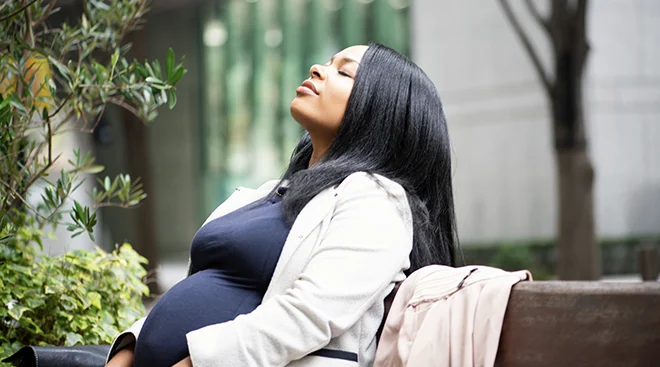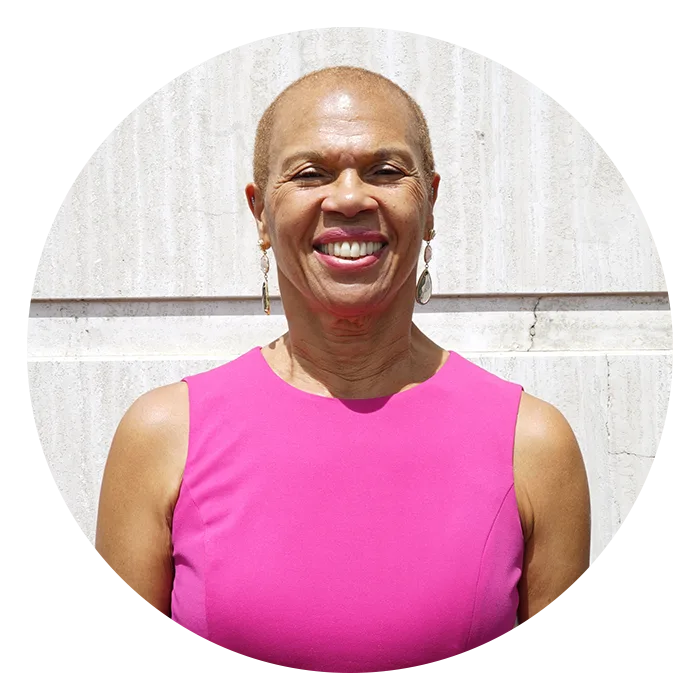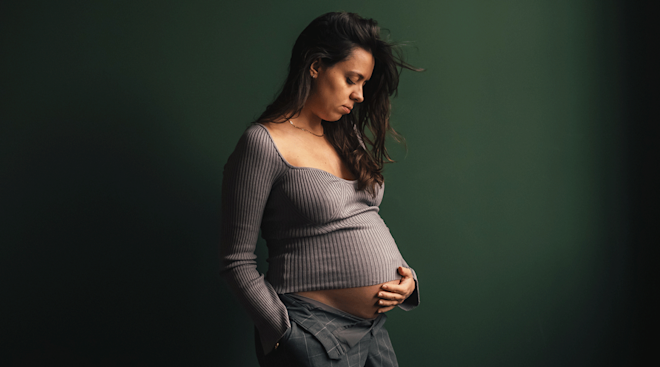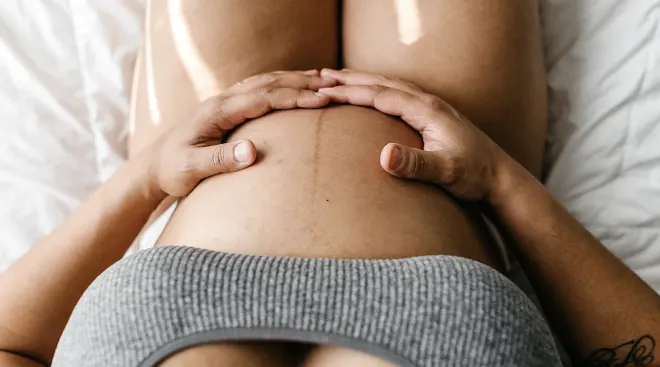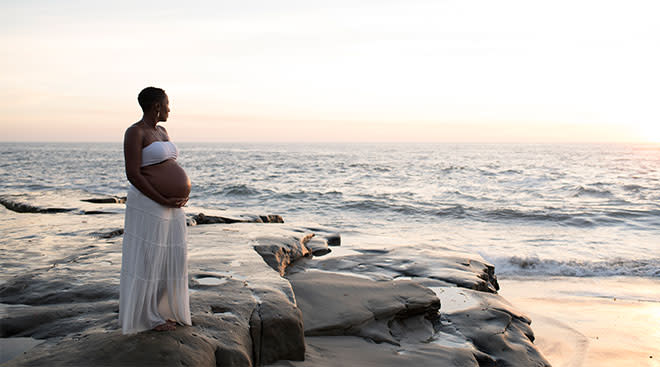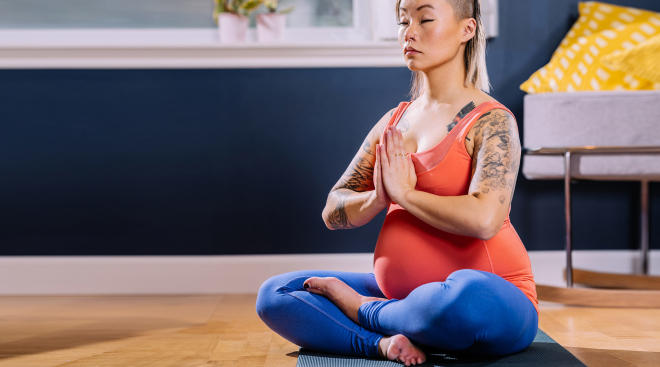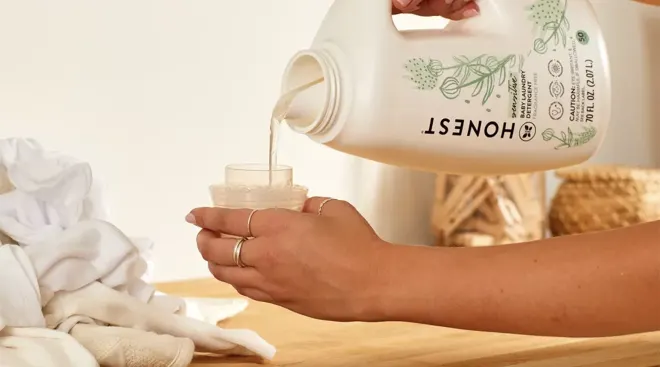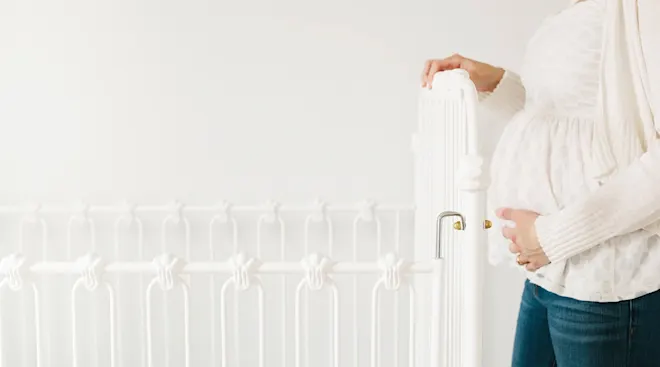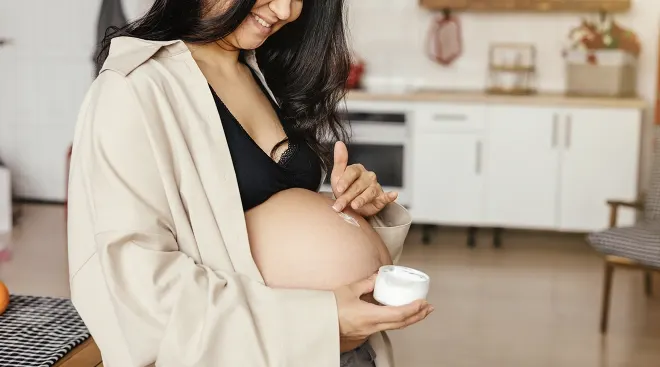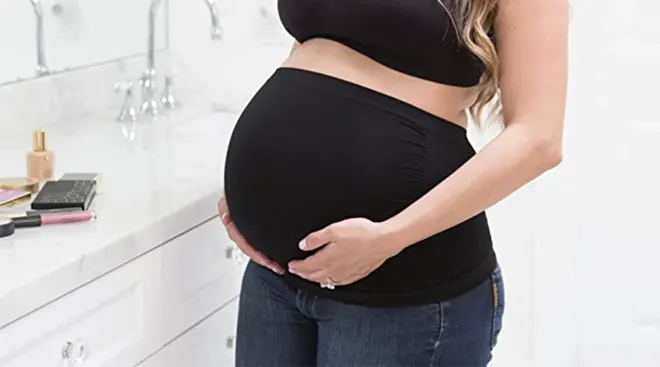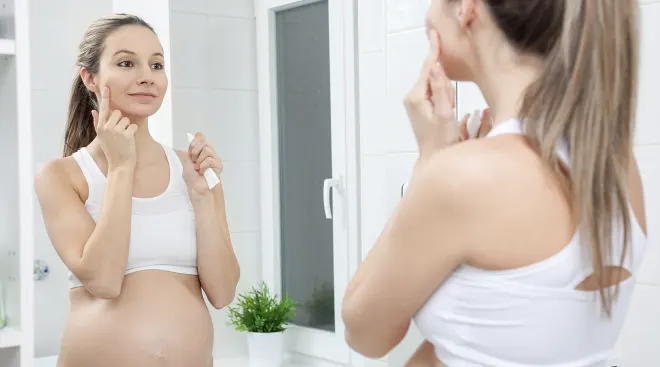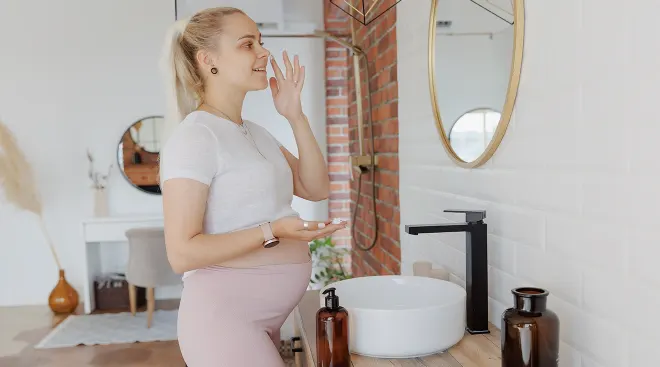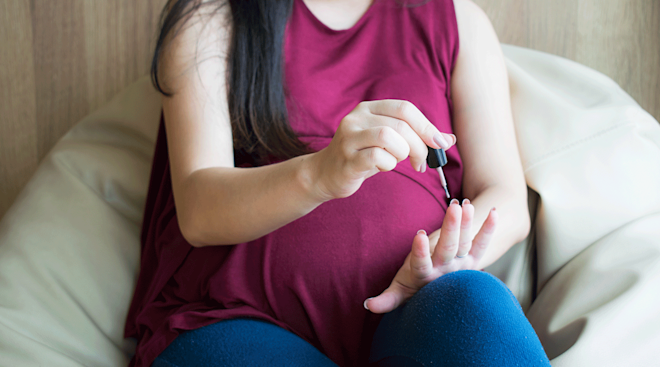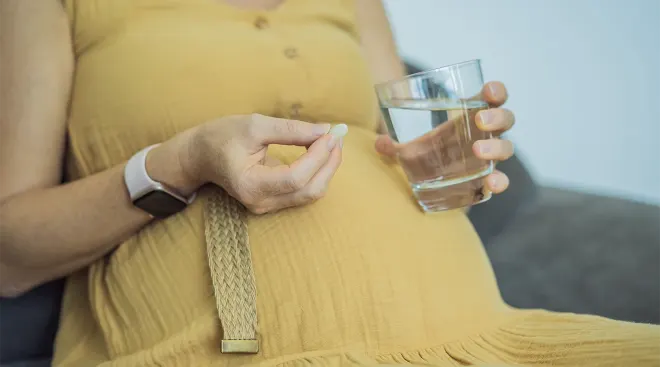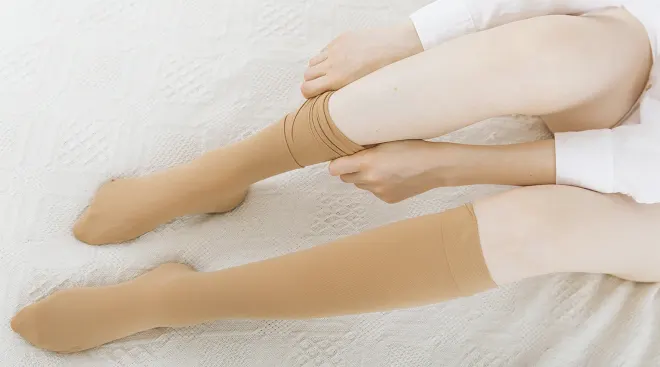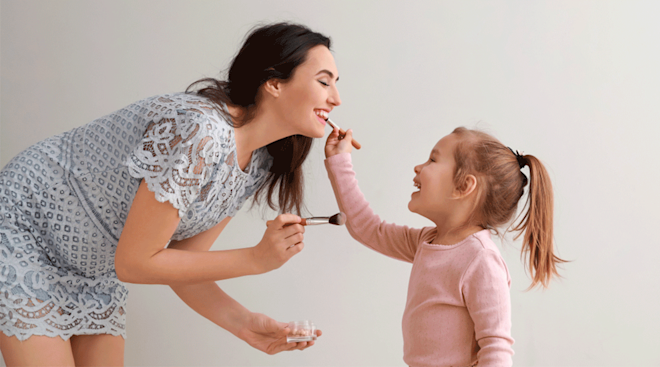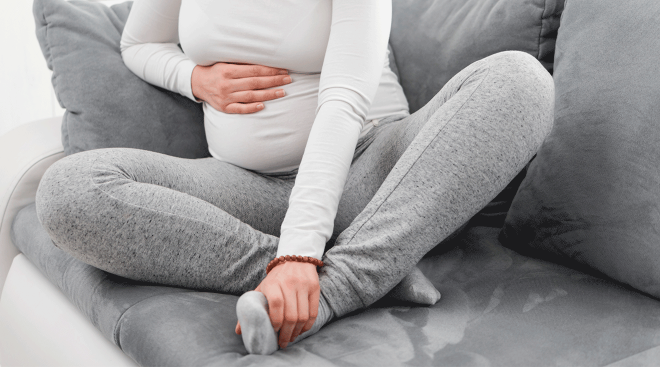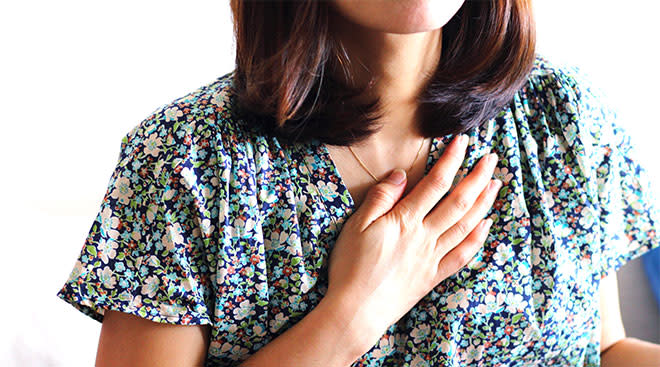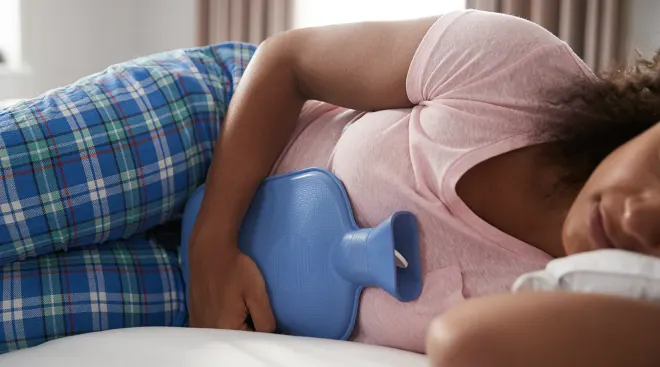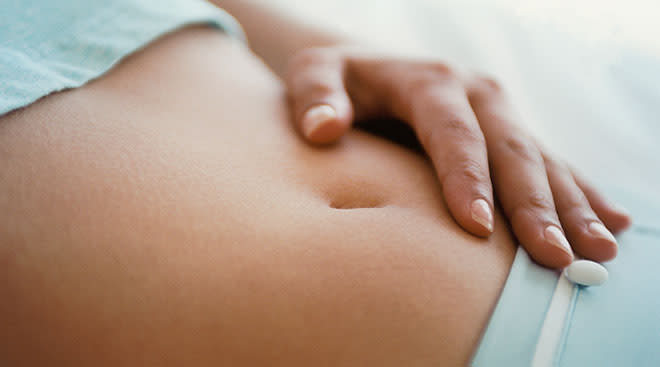Why You Can’t Achieve Maternal Health Without Mental Health
This article is part of The Bump’s Doctor Spotlight series featuring medical professionals who are dedicated to supporting and preserving Black maternal health. These doctors share their experiences, insights and advice to help guide and empower women of color who are planning or navigating pregnancy.
It’s not easy being pregnant. It’s not easy caring for a baby. It’s certainly not easy navigating the path to parenthood as a woman of color. The undeniable stressors of pregnancy and early parenthood are often compounded by the psychological burdens that systemic bias and social stigmas place on Black mothers. There is a lot of talk around how, as a society, we can address healthcare disparities and improve maternal outcomes for BIPOC communities—but as Denese Shervington, MD, a psychiatrist and trauma specialist, points out, physical health cannot be separated from mental health. Below, Shervington, who established the Institute of Women and Ethnic Studies, outlines why mental health is so critical to mothers’ overall wellbeing, how she’s working to support it and what Black moms-to-be can do to find inner balance.
The Bump: What inspired you to found the Institute of Women and Ethnic Studies, and what work is the organization engaged in?
Denese Shervington: I founded the Institute of Women and Ethnic Studies (IWES) in my junior academic years, during which I received a master’s in public health to complement my MD degree. I have always believed that it was important to anchor my medical career within a broader framing of community health and health systems to better understand health disparities and inequities in BIPOC communities. It is very evident that socioeconomic inequities contribute to negative health outcomes, so as a physician we cannot focus solely on individual behaviors. During my public health training I focused on women’s health because if women are well, so will be the family.
Hence the birth of IWES, a community-centered public health nonprofit organization domiciled in New Orleans. Our first body of work was done collaboratively with BIPOC organizations in the early 1990s. We attended major global conferences on women’s health to assure that the US government would include an equitable focus on the reproductive health needs of BIPOC women with an emphasis on rights and justice. IWES has grown significantly over the past 16 years since Hurricane Katrina and now has a staff of 36 working in the areas of maternal child health, adolescent health, HIV and STI, and mental health.
TB: As a psychiatrist, how do you see mental and spiritual health factoring into Black maternal health?
DS: Mental health is defined by the World Health Organization as a state of wellbeing in which an individual can realize their own abilities, cope with the normal stresses of life, work productively and fruitfully, and is able to contribute to their community. Women are very vulnerable to mental health fluctuations during the peripartum period due to a host of genetic and hormonal factors, as well as social factors such as economic status, relationship challenges (including domestic violence), low social support networks and prior mental health and substance use disorders.
One of the important lessons the COVID-19 pandemic has taught us is that our mental health is as important as our physical health, and they cannot be separated. The “mind” is the energetic system produced by our brain to bring conscious awareness and attention to its functioning. The brain is our body’s response organ that ensures our survival and our continuation. Our mind is constantly registering our internal biological need to create the homeostasis needed for our survival, as determined by our brain, at the same time registering what’s happening in the external world. Through our emotional drives embedded deep in our lower and mid brain, the mind tries to arouse our body to meet those needs in the external world. Hence, it is very hard to survive without a well-functioning mind, one that is realistically reflecting how to meet the needs of our brain to keep us alive. There can therefore be no health without mental health!
Additionally, given that we know nothing about the mystery of the existence into which we were born and will ultimately exit, maintaining a pathway of spiritual curiosity and questioning helps us to manage our existential anxieties.
TB: Your areas of speciality include health disparity and trauma. How have systemic racism and resulting trauma impacted mothers of color, and how can expectant moms best advocate for themselves?
DS: The need for a group to exert racial supremacy over another racial group creates collective suffering, which contributes greatly to individual-level autobiographical trauma. In other words, racial trauma has a compounding effect on other types of traumas. Structural racism emanating from the dominance of white supremacy has suffused poverty into the lives of many BIPOC communities, and many expectant moms find themselves grappling to survive. As a society, we must advocate for undoing racism and restoring people and communities to wholeness.
There are multiple pathways—from activism outside to advocacy inside—to dismantle the power structures that continue to maintain these artificial hierarchies of human value. My advice to expectant moms is to determine those systems that are obstacles to your wellbeing and align with or support those who are already doing the work. There is no need to fight individually and add to the built-in stress inherent in pregnancy.
TB: What do you see as key to preserving and protecting Black maternal health, and how are you working in support of that?
DS: Key to preserving and protecting the mental health of Black women is providing the economic and psychosocial supports they need to manage the stressors of pregnancy, birthing and child rearing. Black women need to be able to devote the time needed to attune with and nurture their newborn. Infants are born mentally and physically helpless and depend on caregivers for their survival. Mothers need to teach their children how to be humans in the world, how to know themselves and socially engage with others. This is how children thrive. We therefore must support BIPOC mothers so that they are best able to care for themselves and the divine gift of life they have been blessed with. Paid parental leave of no less than six months is paramount.
TB: What is your top piece of advice for Black expectant moms?
DS: The extent to which we can get our needs met in the external world is the extent to which we feel mentally balanced. Hence it is important for Black expectant moms to become more reflective, become more familiar with your mental states, your internal world, and try to know yourself from the inside out. That’s when you can live more authentically and be able to rise to the daily challenges and joy that is our existence. Living life on the outside, keeping it moving no matter the bumps along the road, is a sure recipe for continued suffering and mental distress.
For more conversations around Black maternal health, check out additional Doctor Spotlight interviews with Temeka Zore, MD, an ob-gyn and fertility specialist; and Kameelah Phillips, MD, a New York City-based ob-gyn. Visit The Bump’s Black Maternal Health Hub for more information, inspiration and support.
About the expert:
Denese Shervington, MD, is a board-certified psychiatrist recognized nationally and globally as a trauma specialist. She is the director of the mental health division of the Institute of Women and Ethnic Studies (IWES), a community-based translational public health institute she founded in New Orleans. Shervington is also the author of the book Healing Is the Revolution, a guide to healing from racial trauma. Additionally, she hosts the podcast Healing Is the Revolution.
Please note: The Bump and the materials and information it contains are not intended to, and do not constitute, medical or other health advice or diagnosis and should not be used as such. You should always consult with a qualified physician or health professional about your specific circumstances.
Navigate forward to interact with the calendar and select a date. Press the question mark key to get the keyboard shortcuts for changing dates.

































